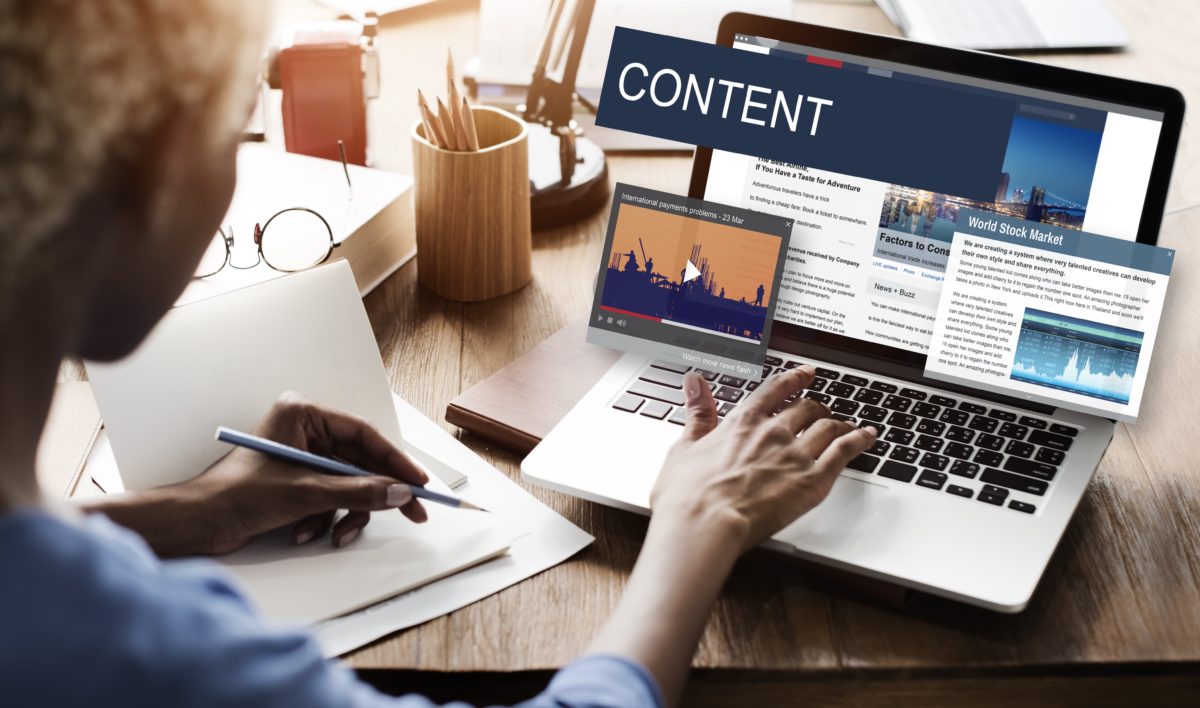
Don’t Skimp on Content: Enhancing Your On-Page and Off-Page Content
Updated December 12, 2017
For many people, when they think of content, they only think about blogs, infographics, or videos. While these are excellent examples of web content that can be used to market your site, there are in fact two main forms of content, both equally important in helping your website’s search engine ranking and overall performance. There is on-page content, which is the content that fills the pages of your website, and there is off-page content, which is the content that fills your blog as well as press releases and articles that are submitted to other websites and blogs. Understanding the difference between the two and how to utilize both is the key to creating a great content strategy.
Let’s start with on-page content.
Just a few years ago, search engines could be fooled into believing your site was useful as long as you regularly published keyword-rich content. Now, more sophisticated algorithms and the rise of social media mean the web is a far more demanding place, with much more specific guidelines that dictate whether or not your content is “quality”. Original content is one of the keys to good search engine results, and skimping on the quality can cause a number of issues that will likely have negative effects on your entire internet marketing strategy. But how does an algorithm determine the quality of your content?
Make sure the copy for your web pages is professionally written by someone who understands your business, your keyword strategy, and SEO. Strategic placement of keywords on page copy is critical, but don’t make the mistake of sacrificing grammar for keyword placement. Remember, your copy has to convince the reader to take the next indicated action, and while search engines might determine your site’s ranking, you are ultimately creating your site for human consumption, and no human will want to revisit a site that doesn’t even make sense to them. Google likes original content and they could very well penalize you for scraped, auto-generated, or thin content. Making the investment in marketing-oriented, high-quality, original content will pay dividends in increased reputation and ranking of your website.
What about external or off-page content?
Write articles about the keywords for which you are trying to optimize your site. In those posts, make sure to provide relevant, interesting and informative content and people will be more likely to read and share it, which will increase your reputation as an expert in your field. Make sure to create anchor text (the clickable text in a hyperlink) for the keywords strategically placed in your press releases and articles and then submit them to article sites and public relations sites.
I can’t stress enough the importance of writing a blog. You are an expert in your field, so share your expertise. While your website’s page content tells your audience what they need to know about your business and your products and services, blogs and other original content offer you the opportunity to explain how your products and services will work in action and apply to your audience’s lives, to share your individual expertise that no one else could offer, or to show a more relaxed, approachable side to your business. It’s also crucial to update your blog on a regular basis, as blogs provide fresh content for your site (Google indexes your site more frequently if there are constant content updates) and they create more links via the anchor text you place in the blog articles.
Lastly, think about the length of your blog posts. Longer content typically performs better, with the average top 3-ranking content having a length of approximately 750 words, and content over 1,000 words in length attracting significantly more links and shares than shorter content. However, don’t automatically assume that your content must be over 750-1000 words and try to force it. A shorter, more densely-written article will contain more valuable information than a longer, padded piece, and not all people necessarily want to or have the time to read a 1,000+ word piece to find the information that they’re looking for. This blog post is about 700 words now, and I’ve said all that I need to say, so I’m going to end it off here. Just remember: it’s important to consider SEO strategies in your content, but don’t sacrifice your content’s readability or usefulness in an effort to make it rank.
About Agency Tsunami
Agency Tsunami has over 20 years of experience building, managing and delivering quality marketing media and excellent customer care. We offer a fully integrated marketing strategy customized for you that incorporates an effective online user experience designed to convert leads and position you ahead of the competition. We implement robust and ethical SEO practices to drive relevant traffic and leverage the way businesses and consumers interact. Contact us today to take your content marketing to the next level.